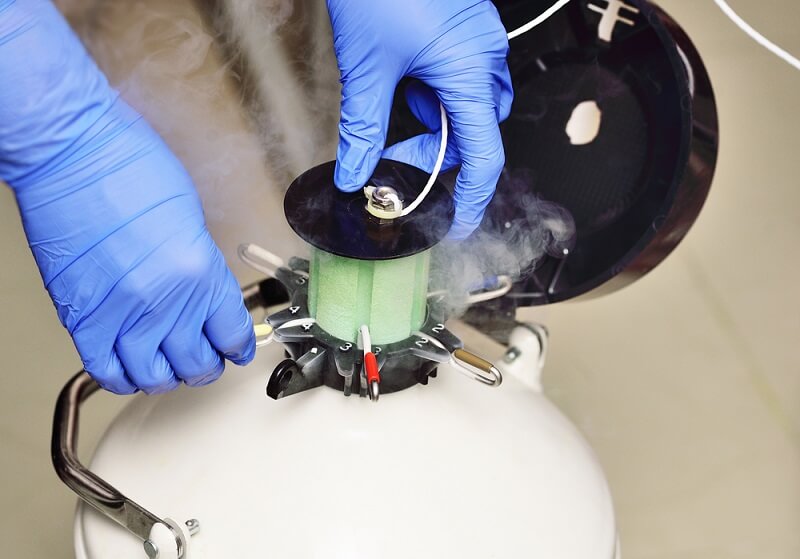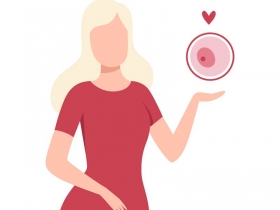What does it mean when eggs are frozen?
It is common knowledge that eggs, sperm, and embryos can be frozen to be used at a later date. You may know some friends or family that have considered this or had their eggs frozen. This is a completely safe and ethical process, but many of us don’t know what this process entails. Are your eggs being stored in some kind of special freezer? While this isn’t a bad guess, there is a scientific process behind freezing eggs and storing them long-term. Vitrification is one of the main processes used to freeze eggs.
What is vitrification?
Vitrification is a process used to cool and warm eggs. This technique has a high survival rate for eggs and embryos. This is now one of the most common ways to freeze eggs. Vitrification is a three-step process that includes:
- The eggs are exposed to a large number of cryoprotectants to dehydrate the cells.
- Then the eggs are put in storage devices that facilitate rapid cooling.
- The storage devices containing the eggs are then cooled as fast as possible.
This process makes the fluid surrounding the egg turn into a glass-like substance. Ice isn’t formed, which is great for the long-term protection of the eggs. Survival rates of eggs preserved this way can be up to 90 percent. Vitrification is an amazing innovation that stores eggs safely and predictably. [1]

How long can you freeze eggs?
You can store eggs indefinitely if you have the resources to do so. Many times you must pay a storage fee for your frozen eggs. The length of time your eggs are frozen shouldn't have that much of an impact on the health of the eggs.
There is some legislation to consider when freezing your eggs. In the United Kingdom eggs were not allowed to be stored for more than ten years. Meaning that after ten years you must either use the eggs for a fertility procedure or have them disposed of. Now the United Kingdom is expanding this rule and allowing for eggs to be stored for up to 55 years. This is great for those who store their eggs with no exact plan of when they will be using them.
When you are thinking of freezing your eggs it wouldn’t be a bad idea to look into the legislation on social freezing in your country. Having your eggs frozen can be an expensive process and it is important to make sure that you can have your eggs frozen for the amount of time you need. [2]
Are there any risks when freezing your eggs?
Freezing your eggs requires an egg retrieval procedure first. The egg retrieval procedure is very simple and safe, but with any procedure, there can be a few risks.
- Conditions may occur due to the use of fertility drugs. To have your eggs retrieved you are usually put on drugs to stimulate the release of eggs. Some of these medications can in a few cases cause your ovaries to become swollen or painful. Some symptoms of this are nausea, diarrhea, bloating, and vomiting.
- The use of a needle to retrieve your eggs can also cause some complications in rare cases. The needle can cause bleeding or infection.
- There is also an emotional factor to consider. You can successfully freeze your eggs and this provides some hope for a future pregnancy. There is no 100 percent guarantee that freezing your eggs will allow you to have a healthy and safe future pregnancy.
Despite the risks, egg freezing is a very safe and common procedure. The egg retrieval can cause some discomfort, but it is usually a quick and safe process. Fertility doctors are experts and will ensure that your eggs are frozen and kept in safe conditions. Freezing your eggs can allow you more flexibility in when and how you decide to have children. [3]
Sources:
[2] https://www.bbc.com/news/health-58456832
[3] https://www.mayoclinic.org/tests-procedures/egg-freezing/about/pac-20384556






